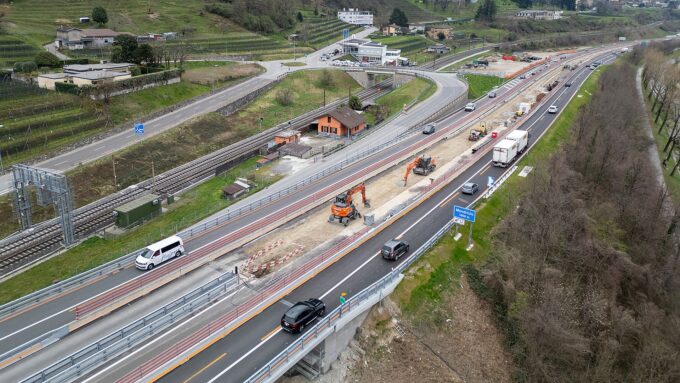Suva: Premiums to remain stable in 2017
Suva closed the 2015 financial year with a surplus of 27 million francs. After returning 48 million francs in compensation reserves to its customers, a negative operating result of 21 million francs remains. It reflects the balance of premiums and risk. The premium level remains stable for the coming year.

It is a pleasing result for the Swiss workplace that Felix Weber was able to present at his first balance sheet media conference as Chairman of the Executive Board. Suva closed 2015 with an earnings surplus of 27 million francs. Switzerland's largest accident insurer also reduced compensation reserves once again. 48 million francs flowed back to policyholders, ultimately leading to a negative operating result of 21 million francs. "This result is an expression of the balance between premiums and risk," as Felix Weber explained at the balance sheet media conference. "As a result, we have succeeded in not unnecessarily depriving the Swiss workplace of capital." In addition, Suva is suspending the premium surcharge to finance inflation compensation as of the current year. This will relieve the burden on insured persons - and thus on the Swiss workplace - by around CHF 200 million per year. The premium level will also remain stable for 2017. "In the coming years, Suva will continue to work to keep premiums as low as possible," Felix Weber added.
Remarkable performance in a difficult environment
Thanks to currency hedges, the accident insurer weathered the discontinuation of the minimum euro exchange rate well. Overall, the environment was challenging last year. Nevertheless, Suva achieved a remarkable performance of 1.2 percent on its investment capital. Real estate, bonds, equities, hedge funds and private equity in particular contributed positively to the result. Fixed assets increased slightly from 46.3 to 46.4 billion francs. These funds are earmarked for specific purposes. They serve the legal mandate of providing long-term security for pensions, as well as for medical expenses and daily allowances for accidents that have already occurred. The financial coverage ratio - the ratio of assets to liabilities - was 133.6 percent at the end of 2015 (previous year 134.2 percent).
Chief Financial Officer Ernst Mäder assessed the outlook for the coming years as difficult. Negative interest rates in the Swiss money and capital markets would weigh on the outlook. In particular, they led to increased costs for currency hedges. As of May 2016, Ernst Mäder presented the following figures: "The investment performance was 1.1 percent and the coverage ratio was an estimated 134 percent."
Stable accident figures and fewer new pension cases
Last year, the number of new disability pensions fell from 1714 to 1605, but Felix Weber does not expect the trend to reverse. Rather, he sees a stable level reached with slight deviations. There was little increase in accidents and occupational diseases. Their number rose to 463186 (previous year 459 921) cases. While occupational accidents and diseases decreased from 182 141 to 180 376, the number of non-occupational accidents increased from 261 360 to 265 297. Medical costs were 1.8 percent higher than in the previous year. They amounted to 1.2 billion Swiss francs. This development continued in 2016.
To prevent costs - and thus premiums - from rising further due to unjustified claims, Suva is using new technologies. The company saved over 200 million francs in 2015 thanks to its invoice control system. 290,000 invoices were rejected. And since the beginning of the year, software has been analyzing and comparing the billing behavior of service providers such as hospitals and doctors: For example, the system recognizes when a doctor bills vitamin tablets for every patient, regardless of appropriateness. Suva then clarifies these cases.
A clear basis
Markus Dürr, Chairman of the Board of Directors, was pleased to announce the completion of the UVG revision. Last year, Parliament had approved the compromise proposal of the social partners without any significant changes. "The revised law confirms the Suva model," said Markus Dürr. He stressed that the model of prevention, insurance and rehabilitation was a key success factor. Now, he said, it was important that the revision of the ordinance also went well. "In view of the challenges ahead, it is important that Suva can tackle the future on a clear legal basis," Dürr emphasized. The difficult economic environment is not only challenging Suva, but above all its customers. The revised law is expected to come into force at the beginning of 2017.
Source: Suva









